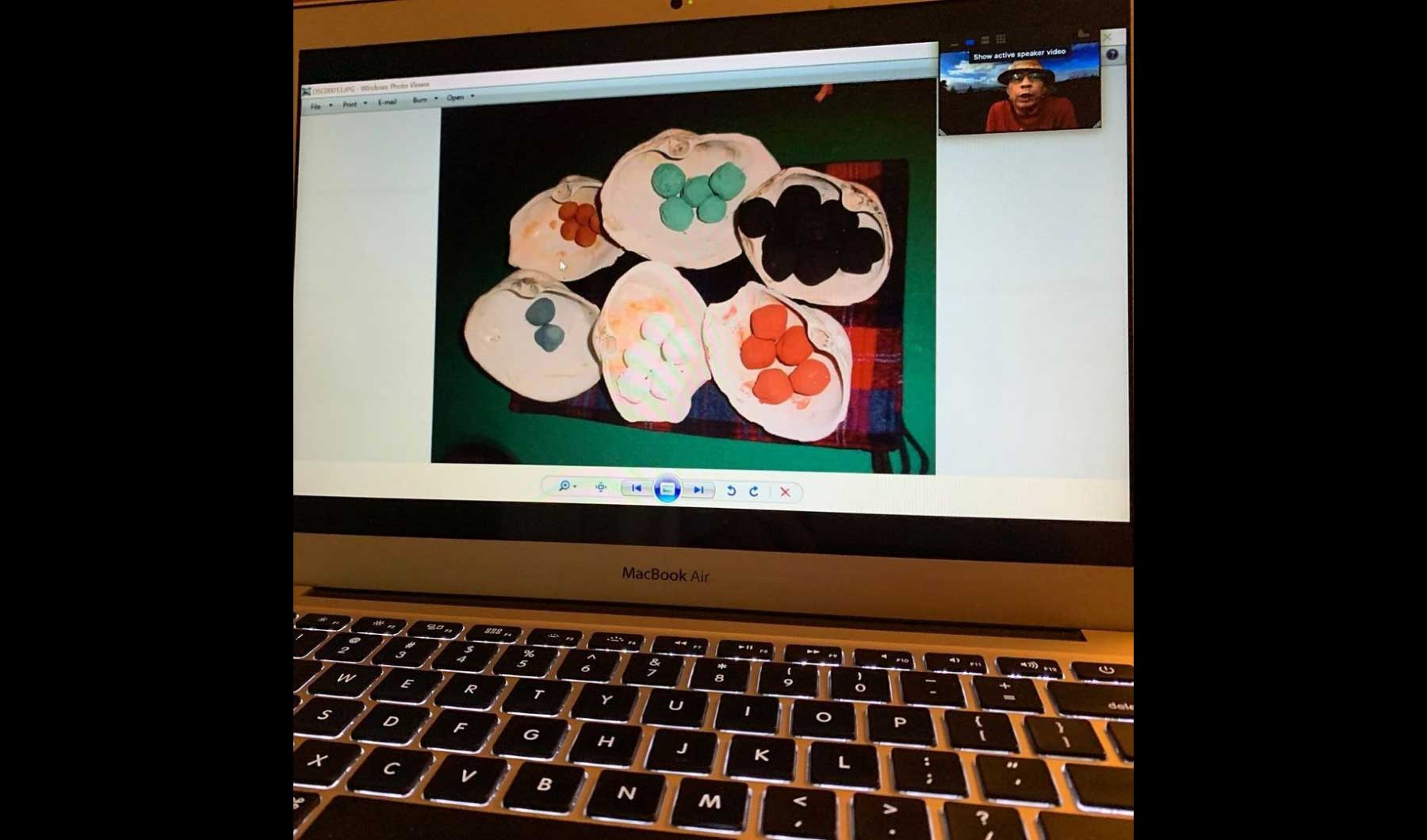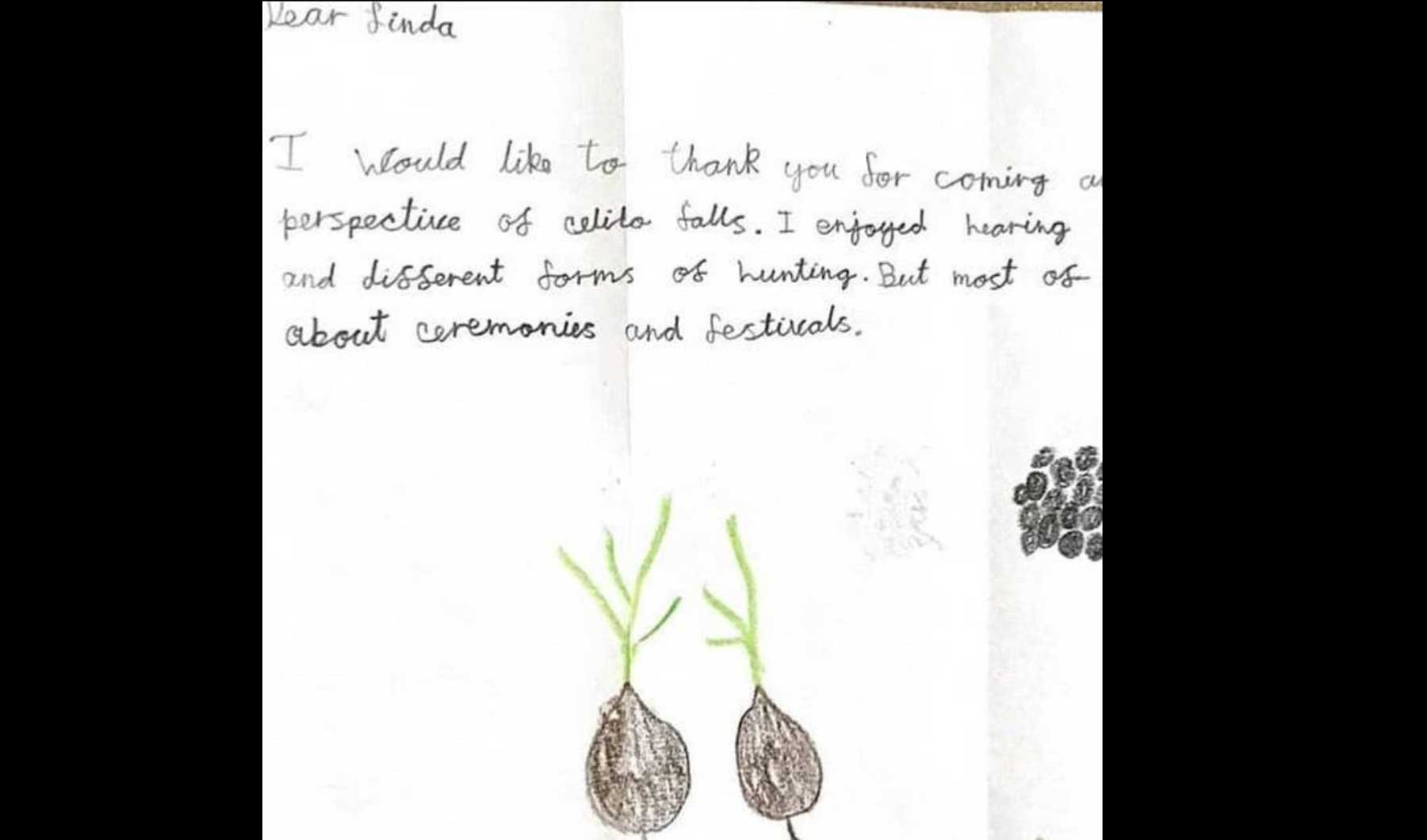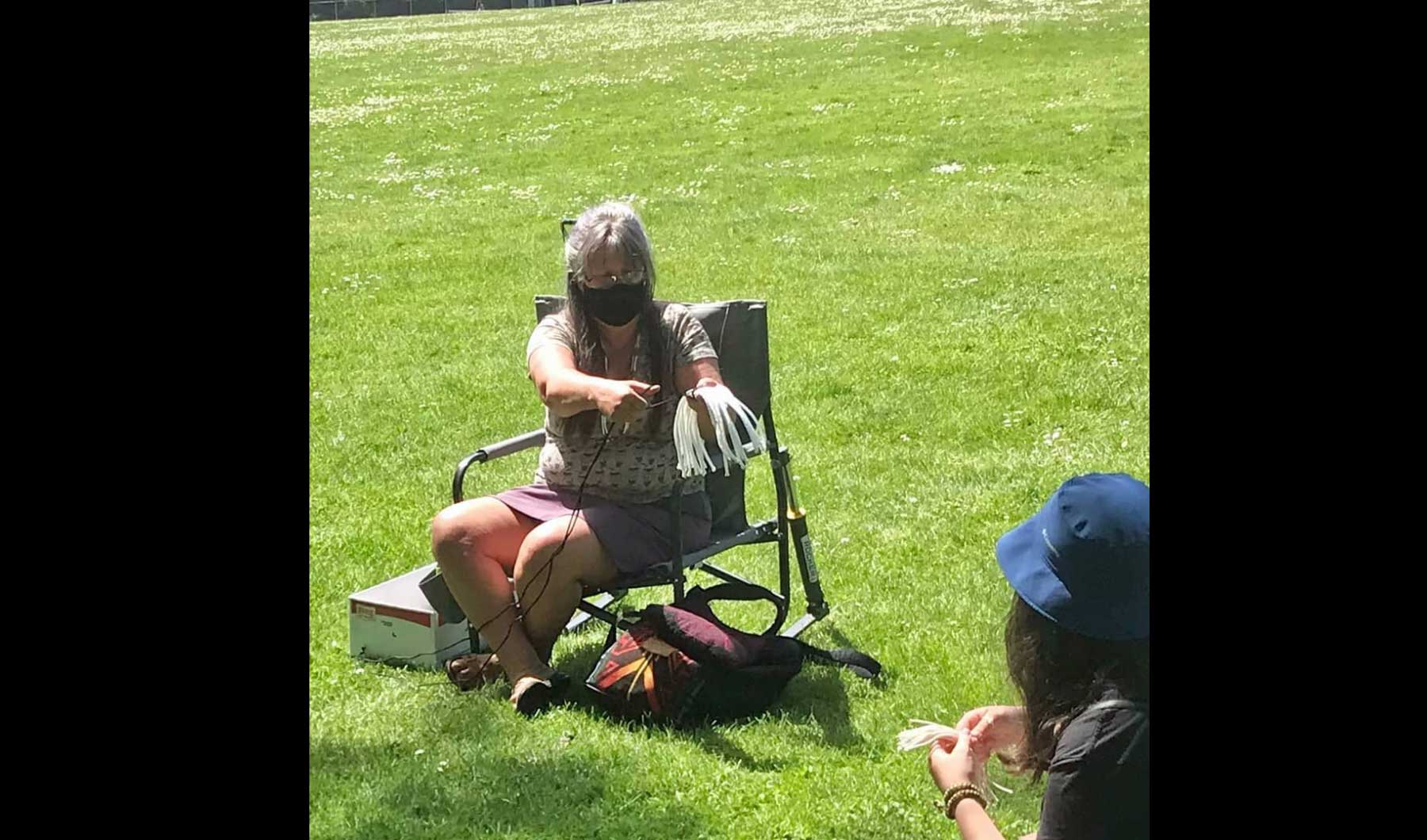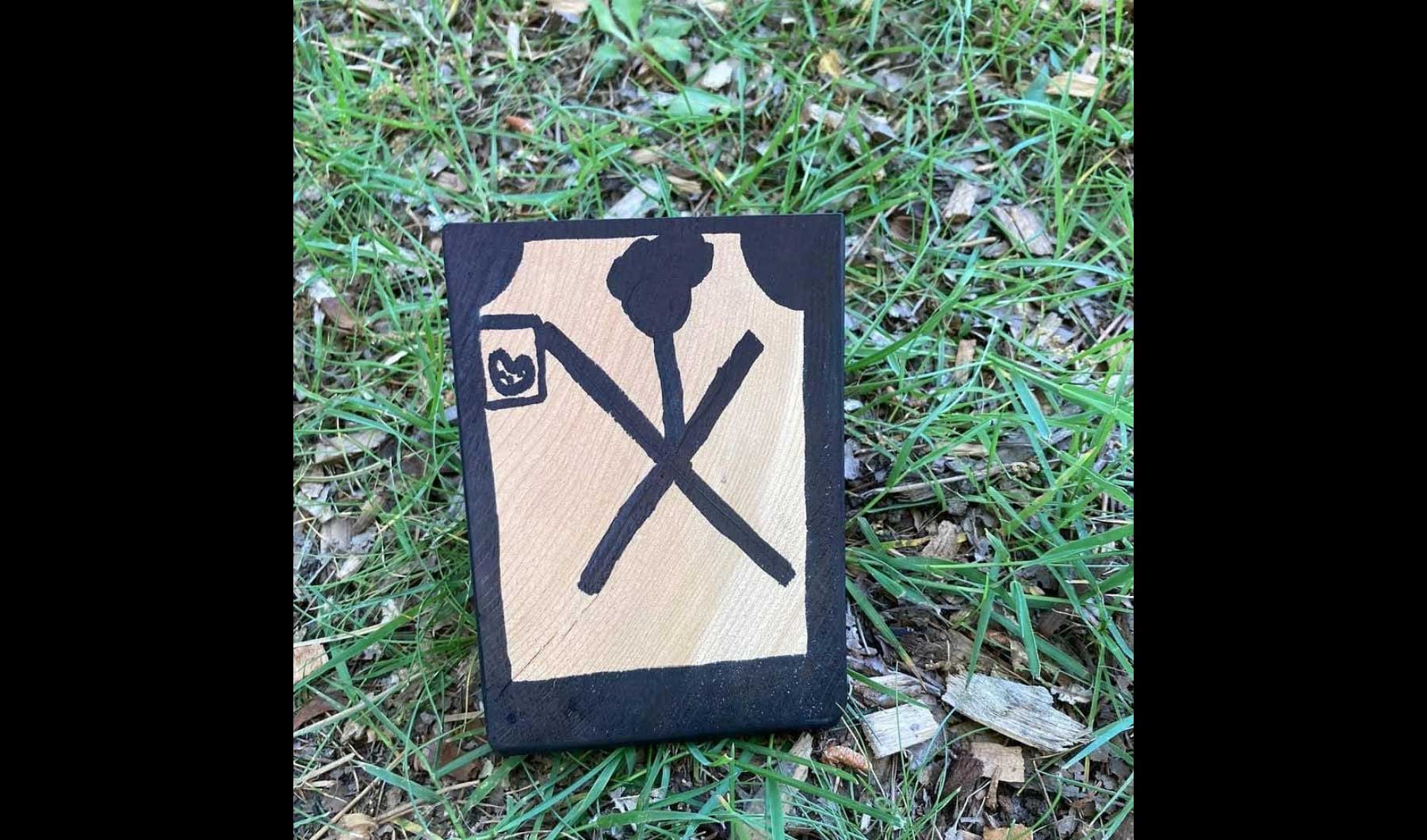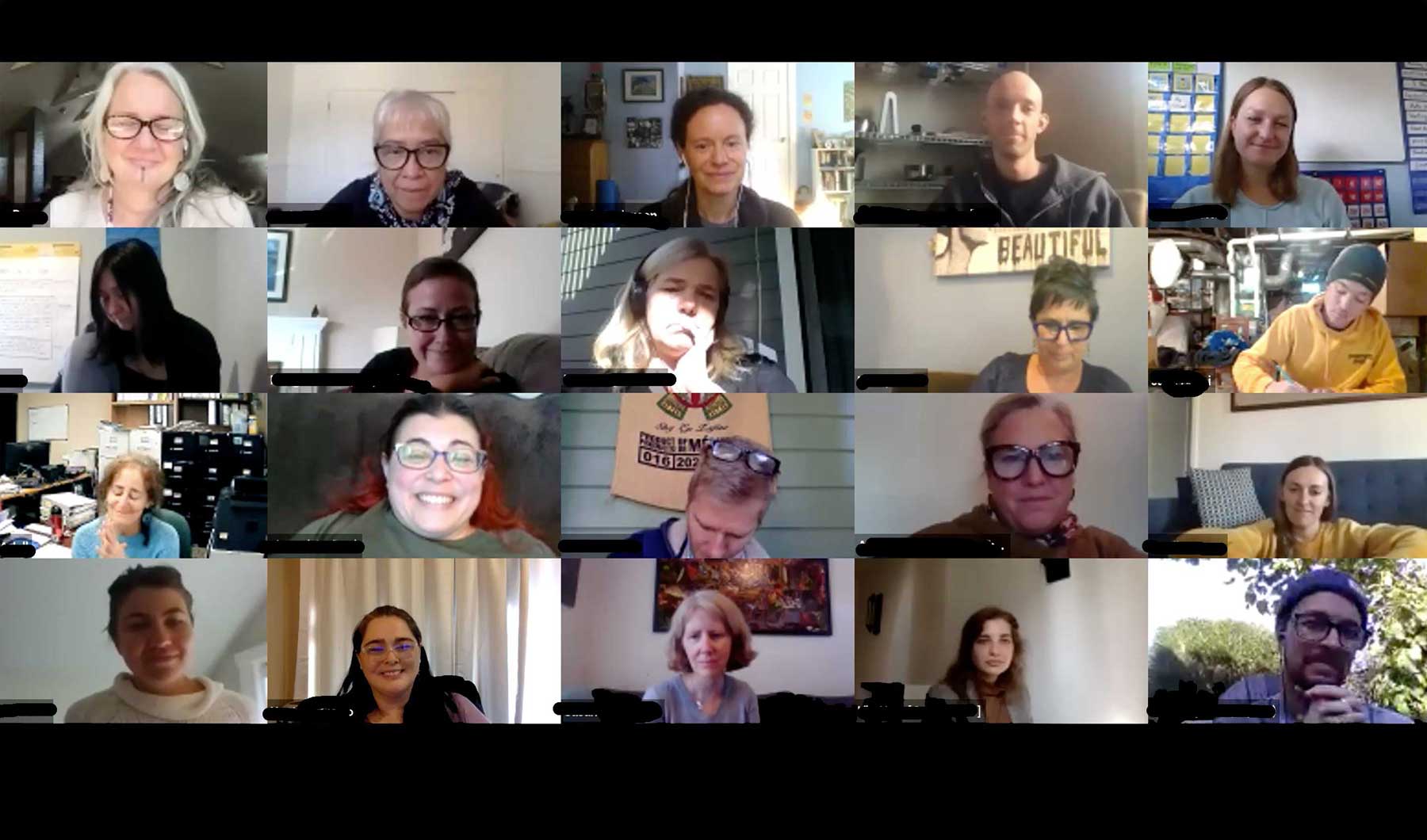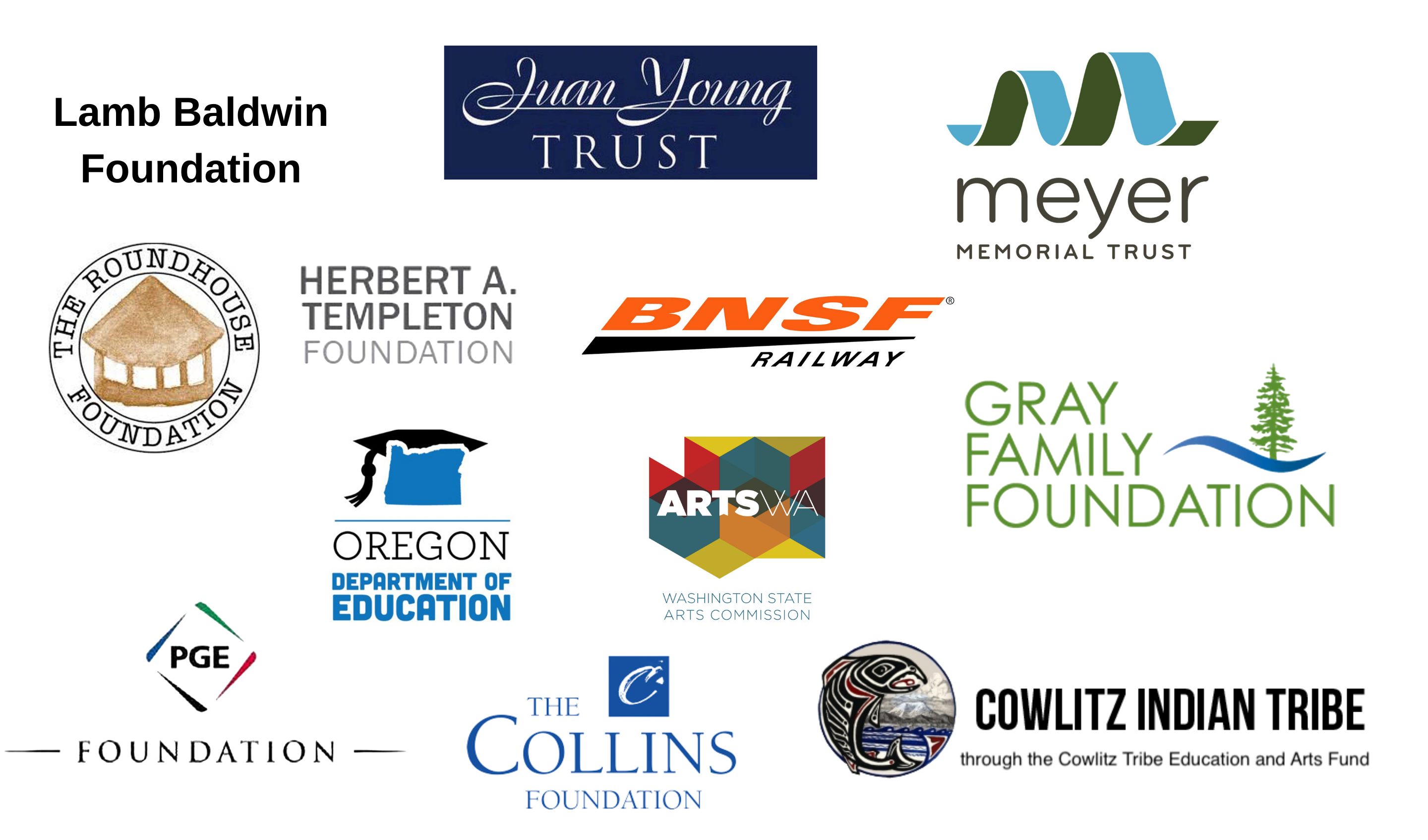Looking Back at an Extraordinary School Year
It is with gratitude for you, our friends, educators, and funders that we recognize that we have been able to connect virtually with so many students and teachers across both Oregon and Washington, and even as far as Massachusetts during this challenging school year. Embracing change and pivoting to meet the needs of students and educators have been the primary focuses for our Education Program. As we all have experienced, the pandemic changed how we connect, learn, and build relationships, and this challenge has provided space for us to serve in creative and persistent ways.
One of the main challenges we faced was the unknown when it came to what each individual school district was doing as schools reopened, or took on hybrid models. How could we pivot to meet their needs and our Native Educators/Native Artists schedules? For most of the school year we chose to only provide programming virtually. At first, learning the technology was hard but soon the technology became a connector.
Over the next school year we are excited to grow relationships with entire schools, and school districts through partnership grants, and plan to continue to grow and meet educators as they continue implementing both Oregon’s Tribal History/Shared History and Washington’s Since Time Immemorial, through professional development. We look forward to engaging with students and educators through a hybrid model of both virtual and in person classroom opportunities. We plan to be flexible and meet schools and teachers where they are, as we all step into our new normal together. We remain committed to lifting Indigenous voices in classrooms and professional development and continue to be grateful for support from our community.
Be safe and be well!
Gunalchéesh (Thank you, Tlingit)
Heather Shá xat k’ei Gurko, Citizen of Tlingit Nation and Dutch/Euro ancestry
Confluence’s Education Program Manager
Looking Back at an Extraordinary School Year
This year we were able to connect with close to 725 students through virtual classroom visits, and some of these visits were part of full school K-5 engagement. One example is Springwater Environmental School in Oregon City. We were able to connect with 120 students, over 6 grade levels through their art program. Native Educators provided Cultural connections, Cultural education, and art projects like beading patterns and pictograph and petroglyph lessons. Another example was a year-long relationship with Metro Montessori Middle School, where Native Educators worked with about 50 student from 7th and 8th grade over 4 quarters and shared Cultural connections, Cultural education, and art, like basket weaving, pigment creation and painting, and sharing about Indigenous foods. And Elders still told their stories, such as Linda Meanus, and received thoughtful thank-yous from the students. These longer engagements provided space similar to our past Confluence in the Classroom residency programs, but through a virtual platform.
Educators Christine and Clifton Bruno taught basketry to 8th graders from the Cottonwood School of Civics and Sciences in May. While most programming was online, this program was done in a small, socially distanced, and masked manner once cases started to decrease and vaccines ramped up. Meanwhile, other students created petroglyph art after their virtual session with the Brunos.
Professional Development also had to pivot to align with the times we walked through together. We were fortunate to be able to engage with over 300 educators across Oregon, Washington and beyond, through our Professional Development workshops. In our virtual workshops we developed a cohort model, where we met with educators virtually over a series of classes, to better meet their changing schedules. Our primary focus was aligning teachers with Oregon’s Tribal History/Shared History and allowing space for teachers to build relationships with their own Culture, other peoples’ Culture, and see Indigenous existence through a different/more focused lens. As our Professional Development program has grown, and as times change, we also saw a need to offer smaller, topic specific “bite sized” professional development workshops. We launched this last fall with Rethinking Planning and Teaching About the First Thanksgiving. We worked with veteran educators Louise Wilmes and Melissa Howard and shared their journey as they created their lesson plan for teaching about the First Thanksgiving. This “bite sized” Professional Development was so popular, that within a few days, we opened up a second class that filled up just as quickly as the first. We are planning to address other topics in the coming school year.
